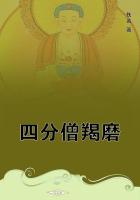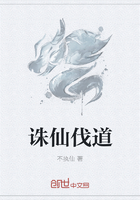"The respect that women, even well-educated, very able women, have for men," he went on. "I believe we must have the sort of power over you that we're said to have over horses. They see us three times as big as we are or they'd never obey us. For that very reason, I'm inclined to doubt that you'll ever do anything even when you have the vote." He looked at her reflectively. She appeared very smooth and sensitive and young. "It'll take at least six generations before you're sufficiently thick-skinned to go into law courts and business offices. Consider what a bully the ordinary man is," he continued, "the ordinary hard-working, rather ambitious solicitor or man of business with a family to bring up and a certain position to maintain. And then, of course, the daughters have to give way to the sons; the sons have to be educated; they have to bully and shove for their wives and families, and so it all comes over again.
And meanwhile there are the women in the background. . . . Do you really think that the vote will do you any good?"
"The vote?" Rachel repeated. She had to visualise it as a little bit of paper which she dropped into a box before she understood his question, and looking at each other they smiled at something absurd in the question.
"Not to me," she said. "But I play the piano. . . . Are men really like that?" she asked, returning to the question that interested her.
"I'm not afraid of you." She looked at him easily.
"Oh, I'm different," Hewet replied. "I've got between six and seven hundred a year of my own. And then no one takes a novelist seriously, thank heavens. There's no doubt it helps to make up for the drudgery of a profession if a man's taken very, very seriously by every one-- if he gets appointments, and has offices and a title, and lots of letters after his name, and bits of ribbon and degrees.
I don't grudge it 'em, though sometimes it comes over me--what an amazing concoction! What a miracle the masculine conception of life is--judges, civil servants, army, navy, Houses of Parliament, lord mayors--what a world we've made of it! Look at Hirst now.
I assure you," he said, "not a day's passed since we came here without a discussion as to whether he's to stay on at Cambridge or to go to the Bar. It's his career--his sacred career. And if I've heard it twenty times, I'm sure his mother and sister have heard it five hundred times. Can't you imagine the family conclaves, and the sister told to run out and feed the rabbits because St. John must have the school-room to himself--'St. John's working,' 'St. John wants his tea brought to him.' Don't you know the kind of thing?
No wonder that St. John thinks it a matter of considerable importance.
It is too. He has to earn his living. But St. John's sister--"
Hewet puffed in silence. "No one takes her seriously, poor dear.
She feeds the rabbits."
"Yes," said Rachel. "I've fed rabbits for twenty-four years; it seems odd now." She looked meditative, and Hewet, who had been talking much at random and instinctively adopting the feminine point of view, saw that she would now talk about herself, which was what he wanted, for so they might come to know each other.
She looked back meditatively upon her past life.
"How do you spend your day?" he asked.
She meditated still. When she thought of their day it seemed to her it was cut into four pieces by their meals. These divisions were absolutely rigid, the contents of the day having to accommodate themselves within the four rigid bars. Looking back at her life, that was what she saw.
"Breakfast nine; luncheon one; tea five; dinner eight," she said.
"Well," said Hewet, "what d'you do in the morning?"
"I need to play the piano for hours and hours."
"And after luncheon?"
"Then I went shopping with one of my aunts. Or we went to see some one, or we took a message; or we did something that had to be done-- the taps might be leaking. They visit the poor a good deal-- old char-women with bad legs, women who want tickets for hospitals.
Or I used to walk in the park by myself. And after tea people sometimes called; or in summer we sat in the garden or played croquet; in winter I read aloud, while they worked; after dinner I played the piano and they wrote letters. If father was at home we had friends of his to dinner, and about once a month we went up to the play.
Every now and then we dined out; sometimes I went to a dance in London, but that was difficult because of getting back.
The people we saw were old family friends, and relations, but we didn't see many people. There was the clergyman, Mr. Pepper, and the Hunts. Father generally wanted to be quiet when he came home, because he works very hard at Hull. Also my aunts aren't very strong. A house takes up a lot of time if you do it properly.
Our servants were always bad, and so Aunt Lucy used to do a good deal in the kitchen, and Aunt Clara, I think, spent most of the morning dusting the drawing-room and going through the linen and silver.
Then there were the dogs. They had to be exercised, besides being washed and brushed. Now Sandy's dead, but Aunt Clara has a very old cockatoo that came from India. Everything in our house," she exclaimed, "comes from somewhere! It's full of old furniture, not really old, Victorian, things mother's family had or father's family had, which they didn't like to get rid of, I suppose, though we've really no room for them. It's rather a nice house," she continued, "except that it's a little dingy--dull I should say."
She called up before her eyes a vision of the drawing-room at home; it was a large oblong room, with a square window opening on the garden.
Green plush chairs stood against the wall; there was a heavy carved book-case, with glass doors, and a general impression of faded sofa covers, large spaces of pale green, and baskets with pieces of wool-work dropping out of them. Photographs from old Italian masterpieces hung on the walls, and views of Venetian bridges and Swedish waterfalls which members of the family had seen years ago.















